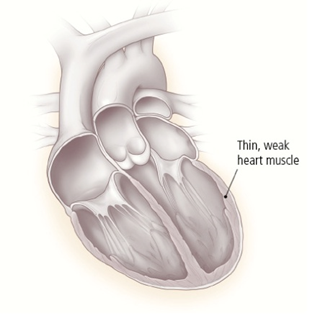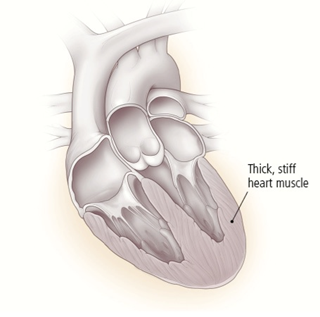Heart failure does not mean your heart has stopped pumping. Your heart is still pumping, but not strongly enough to supply your body with all the energy it needs.
Heart failure weakens your hearts power to pump. As a result, blood circulates through your heart and body more slowly. Your cells thirst for oxygen and nutrients. Fluid can collect in your lungs and other tissues.
At first, your heart compensates for its weakness. The heart muscle wall expands in order to hold more blood or it thickens to pump blood more forcefully.
The heart beats faster and harder to pump more blood. Blood vessels narrow. Circulation is diverted away from less important tissues, like the kidneys, to keep the heart and brain well-supplied.
These fixes are effective in the short term. But the solution is temporary.
Eventually, these changes speed the hearts decline. Stress on the heart increases. The heart works harder and harder to deliver less blood to the body.
Blood backs up in your body. Fluid collects in your lungs, legs, and other body tissues, further straining the heart.




